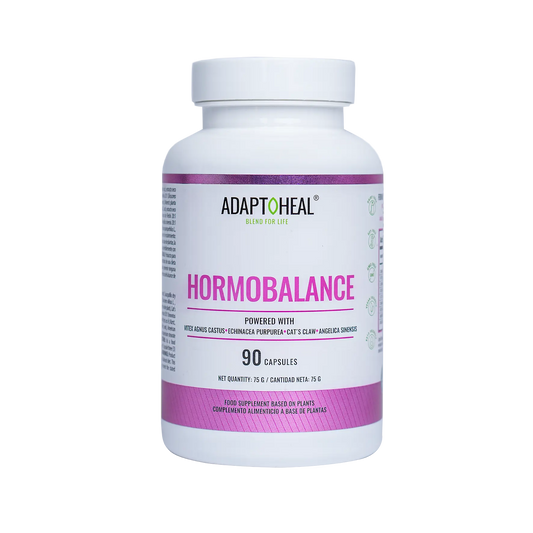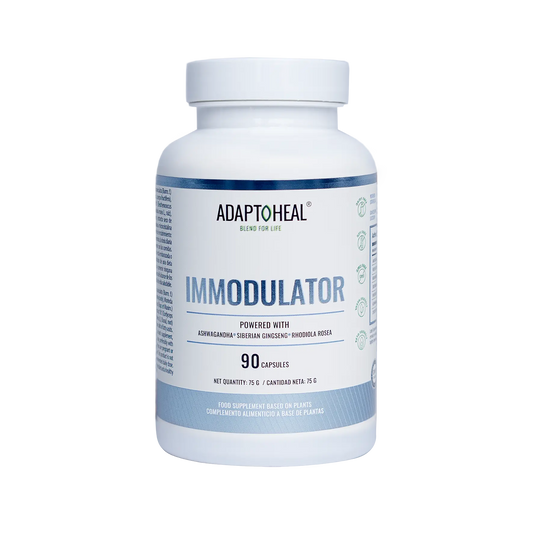What are the health problems associated with menopause?
Menopause is a natural stage in every woman's life, a biological milestone that marks the end of fertility and reproductive function. Although it is a natural process, it is not easy to navigate. The body undergoes a series of profound changes that can have repercussions on physical, mental and emotional health. World Menopause Day , celebrated every October 18, invites us to reflect on the health problems associated with this stage, providing greater visibility and support to all women going through this transition .
One of the most important aspects of menopause is the fact that it is not only a hormonal experience, but it also has a significant impact on overall health . From increased cardiovascular risk to emotional changes, a woman's body changes profoundly, and with it, the needs for care and attention. Let's explore the main health problems that can arise during menopause and how we can face them with greater awareness and preparation .
1. Cardiovascular risk
According to various studies, one of the most serious and least known health problems associated with menopause is the increased risk of cardiovascular disease . Before menopause, estrogen levels in women provide a kind of "natural protection" against heart disease. However, when estrogen levels are drastically reduced during menopause, this protective shield is diminished, and the risk of suffering from heart disease, such as hypertension, heart attack or heart failure, increases considerably.
This increased risk is not only linked to the lack of estrogen, but also to other factors that occur during menopause , such as an increase in "bad" LDL cholesterol, a reduction in "good" HDL cholesterol, and the possible appearance of hypertension. All of this contributes to a more prone scenario for the cardiovascular system to be affected.
It is crucial for women to be aware of this change and, starting with menopause, to start paying even more attention to their heart health. Regular medical check-ups, maintaining a balanced diet rich in omega-3 fatty acids and antioxidants, as well as leading an active lifestyle can make a huge difference in preventing these diseases.
2. Osteoporosis
Bone density loss is another of the most common health problems associated with menopause . As estrogen levels decline, so does the body's ability to keep bones strong. This causes an accelerated loss of bone mass, which can lead to osteoporosis, a condition in which bones become more fragile and prone to fracture.
To cope with osteoporosis during menopause , regular exercise is essential, especially endurance activities such as walking or weight lifting, as they help strengthen bones. Excessive tobacco and alcohol consumption, which can accelerate bone loss, should also be avoided. Maintaining a balanced diet with sufficient protein and nutrients such as phosphorus and magnesium is key, and in some cases, hormone therapy may be recommended by a doctor to slow bone loss, depending on the assessment of each patient.
3. Mental and emotional health problems
Menopause affects not only the body, but also the mind and emotions. Many women experience significant emotional changes during this stage. Depression, anxiety, and mood swings may become more frequent due to hormonal fluctuations. These changes, coupled with the stress of adjusting to a new stage of life, can create an emotional storm that is difficult to manage.
It is important for women to have a good support system during this stage, whether through family, friends or mental health professionals. Therapy and self-care practices, such as meditation, mindfulness or yoga, can be of great help in managing these changes and improving emotional health.
4. Weight gain and changes in metabolism
During menopause , women's metabolism tends to slow down. This means that the body burns fewer calories, making it easier to gain weight . Many women notice that even if they maintain their diet and exercise routine, they start to gain weight, especially in the abdominal area.
Weight gain at this stage of life not only affects body image, but is also linked to an increased risk of developing health problems such as type 2 diabetes, cardiovascular disease and certain types of cancer. To combat these changes, it is essential to eat a nutrient-rich diet, low in refined sugars and saturated fats, and increase physical activity, with special emphasis on strength training and aerobic exercises.
5. Urinary and vaginal problems
Menopause can also cause changes in vaginal and urinary health. Decreased estrogen can cause vaginal dryness, irritation, and even pain during sex (dyspareunia). In addition, some women experience urinary incontinence or recurrent urinary tract infections due to changes in the tissues of the urinary tract.
Fortunately, there are treatments available to improve these symptoms. Vaginal lubricants and moisturizers can relieve dryness, and in some cases, the use of hormone replacement therapy or localized vaginal treatments may be recommended by health care professionals.
6. Sleep problems
Insomnia and trouble sleeping well are common complaints among women going through menopause. Hot flashes at night, which are one of the most characteristic symptoms of this stage, can disrupt sleep, causing fatigue and problems concentrating during the day. This cycle of sleep deprivation can also aggravate other health problems, such as depression and anxiety.
Establishing a healthy sleep routine, avoiding caffeine and alcohol before bed, and practicing relaxation techniques can be helpful in improving sleep quality.
World Menopause Day
Menopause is a time of great change for a woman's body, but it's important to remember that you're not alone. World Menopause Day is on October 18 and reminds us to talk openly about these issues, so that women have the information, support and tools they need to take care of their health at this significant stage of life. Becoming aware of health risks, such as increased cardiovascular risk, osteoporosis and emotional problems, is the first step to proactively addressing them and living a healthier and more fulfilling menopause.
*Study “Cardiovascular risk associated with menopause” by Bryan Daniel Bolaños Chaves and Estefanía Ortega Muñoz for the Sinergia Medical Journal .













Leave a comment